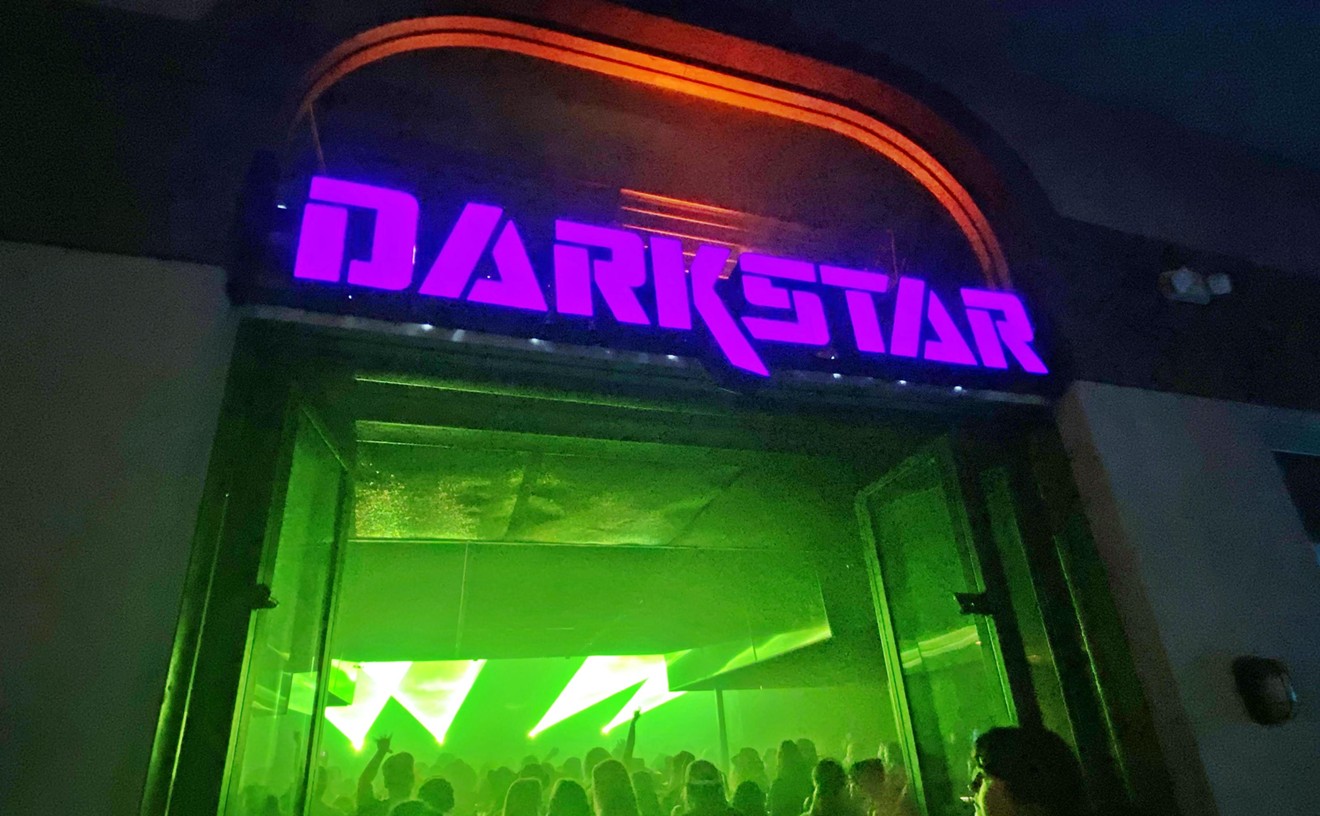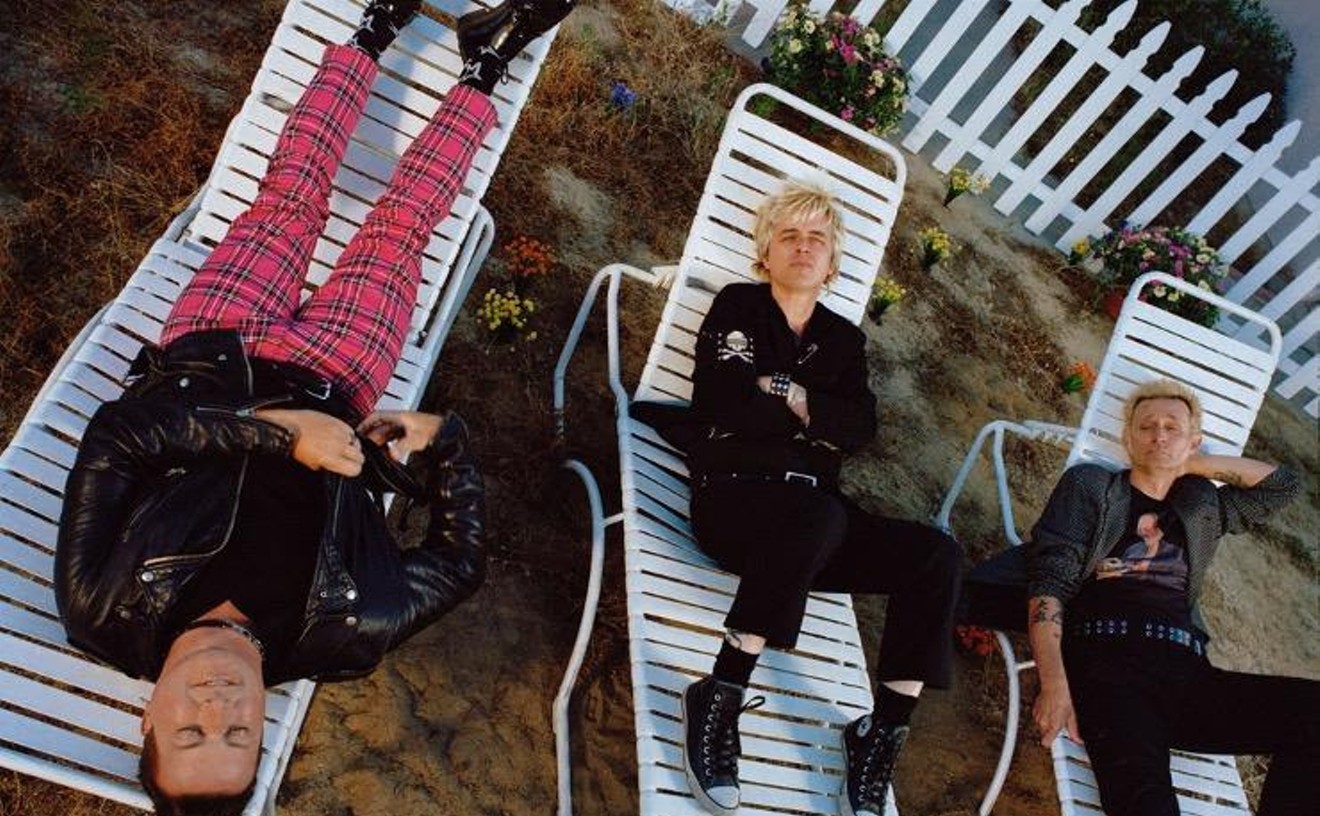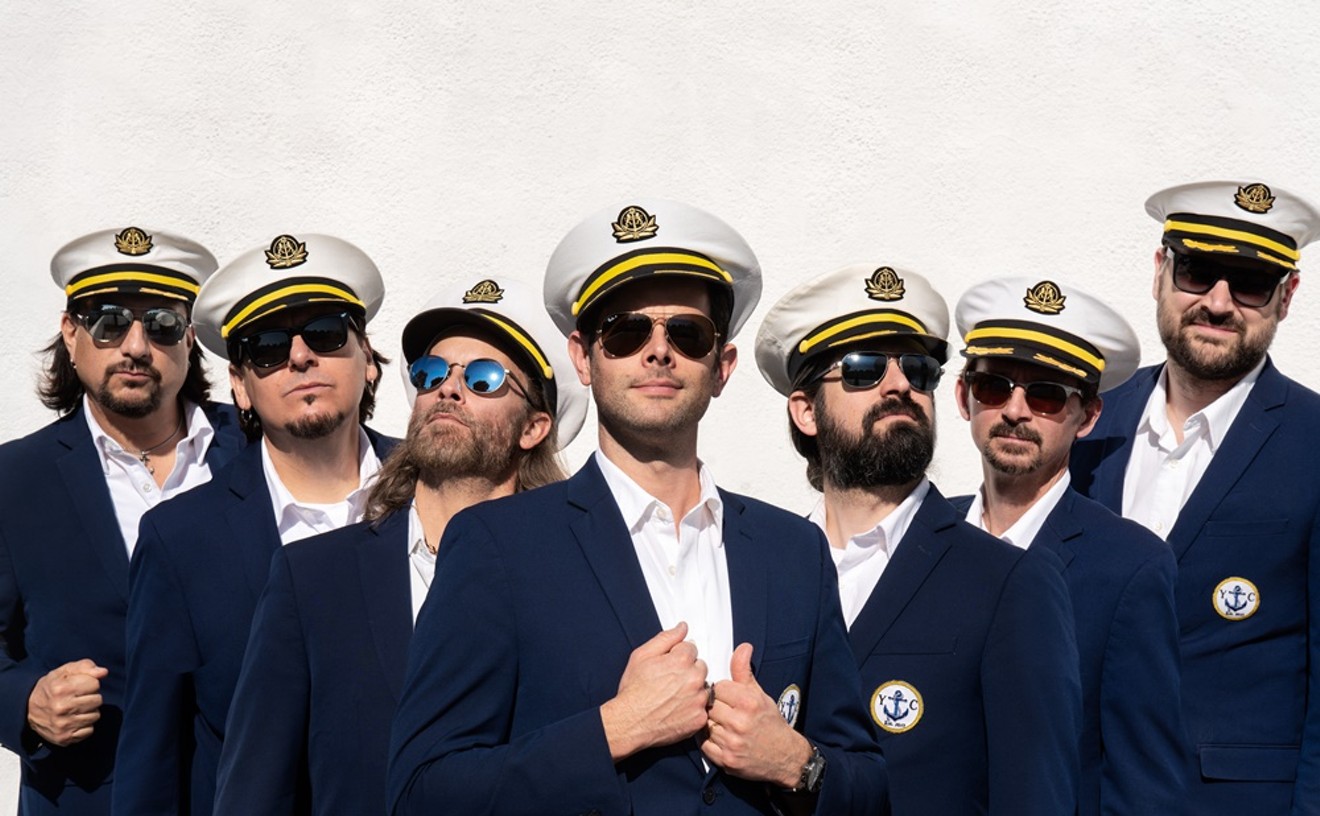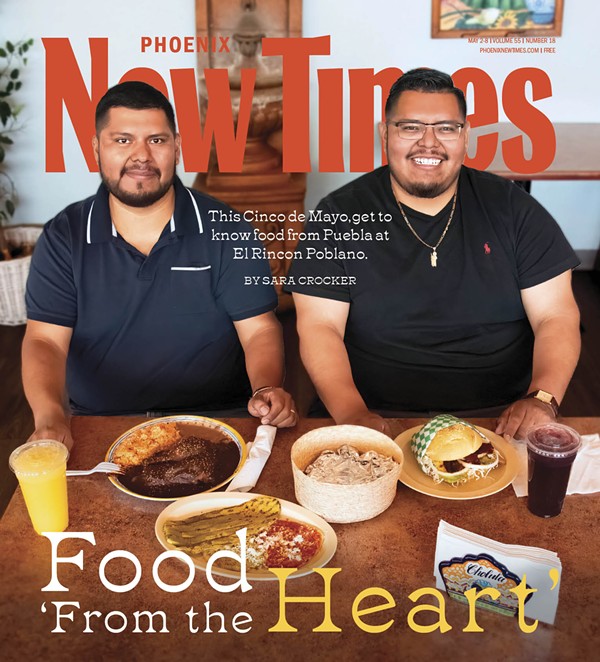To date, we've only sent one record with a skanking beat into the Top 5--Little Millie Small's squeaky-sweet ode to her pubescent licking stick, "My Boy Lollipop"--and that was way back in 1964! Despite its impressive chart showing, "Lollipop" was largely viewed as a novelty song. There wasn't much call for bluebeat at the height of Beatlemania, and this jumpy genre came and went without most people even knowing what it was.
It's doubtful Yanks ever heard the word "ska" until the late Seventies, when punk peaked in Britain and the Specials spearheaded a ska revival there. The band's leader, Jerry Dammers, started up the phenomenally successful indie label Two Tone, home to the Specials, Madness, the Bodysnatchers, the Selecter and the English Beat. By 1983, only Madness remained to carry the Two Tone torch. Although the nutty boys in baggy trousers did reach the Top 10 in the States that year with "Our House," they, too, were viewed as a novelty act, with few fans ever connecting the group to the larger musical movement from which it sprang.
Last year, after Green Day went multiplatinum and the industry tagged it a "punk revival," many reconciled themselves that, true to the cycle of repetition, we'd soon be giving Two Tone a second glance. Yet ska music never really disappeared from the American club scene, especially in the Midwest. Bands like the Toasters and the Mighty Mighty Bosstones have been championing ska for the better part of two decades, inspiring legions of ska bands in every city. Bucket, lead singer of the Toasters, also started up Moon Records, which quickly became the main outlet for ska in this country, sort of a stateside Two Tone.
Moon is constantly releasing compilations, or "ska-mpilations" as the label prefers to call them. A recent one featured all Latin ska bands. Another one, called The California Ska Quake, had all California ska bands on it. Following up last year's successful Skarmageddon collection, the label is currently preparing an ambitious, two-CD set called Spawn of Skarmageddon, which will feature 40 skanking wonders from this great land of ours. One of those bands just played to a packed house at the Electric Ballroom on June 10, opening up for the Toasters: Phoenix's own, and practically only, ska band, Kongo Shock.
Things have been accelerating quite rapidly for the septet since it finalized its lineup in January of 1994. Three months ago, the men from Kongo recorded their own CD for the grand sum of four grand. Three weeks ago, that CD, Dick Triple Flip, turned up in local stores and has already sold 400 copies. Its leadoff track, "Ska Vs. Spy," was added in heavy rotation to KUKQ's regular playlist on a recent edition of the Monday Morning Music Meeting program. If that isn't enough, the band's founder and guitarist Bob Noxious received word recently that Kongo Shock would be playing on the third stage at this year's Lollapalooza.
And make no mistake about it, this is a band that does things as a band. All seven members (plus roadie Johnny Duct Tape) gathered together at the Kongo rehearsal space for this interview, huddled in the studio's combination lounge/crawlspace area. Not since the Von Trapp Family Singers hid themselves in a nunnery has a musical group seemed this tightly knit. Wildly different as individuals, this seven-headed organism is of one mind concerning all things Kongo Shock. Everyone is comfortable enough to finish each other's sentences, but thankfully, no two members have that eerie Donny and Marie telepathy where they blurt out the same words at the same time. What you get here is sort of like a Robert Altman film with everyone cross-talking. A lot.
Bob Noxious is the band's main public relations liaison, as well as its most cautious conversationalist, predisposed to steering the group away from controversy or negative topics like ex-members or minor infractions with the law. Once the group gets the hang of answering questions "off the record," the tape recorder gets shut off no less than four times, a luxury Newt Gingrich's mom was never afforded by Connie Chung.
Five years ago, Bob left sleepy Maine for the more desirable desert lifestyle (read: cheap standard o' livin'). In those days, he fronted a thrash band called Big Dog, which followed his lead out west. Eventually, the band splintered, and Bob, unsure of what direction to take next, placed a few ads looking for musicians to jam with. One player who turned up was Shadrach Powell, a.k.a. Dr. Skankalitus, Kongo Shock's bassist/percussionist/singer and elder ska statesman at 37. He is said to have played with Toots and the Maytals in some capacity a long time ago and was in the Effects, a local Phoenix ska band of long standing.
"We've been called so many different things," notes the Trinidad-born singer. "Ska funk alternative, ska punk, ska reggae. Last year, New Times named us best reggae band, and we don't play anything that sounds vaguely like Big Mountain."
Not that anyone's complaining. "On the strength of that [mention], we went from being a no-paying-gig band to playing the Roxy and the Balboa Cafe," grins drummer Jimmy Boom Ska Boom. With more than 100 shows under its belt since then, the band also went from being a musically loose but fairly stationary aggregation onstage to the manic, near-psychotic live act you see now. Within the first few horn blasts, the six guys out front are wiggling wildly, running in place and shuffling like vaudevillians trying to shake bugs out of their trousers. "Sometimes it's mass chaos," admits Bob of the occupational hazards. "Somebody either gets a guitar in the face or somebody gets stepped on."
Possibly the biggest character builder for the group came last summer when KS was picked out of 4,000 entries to perform during the New Music Seminar in New York City. The band was so green to the ways of the industry, it arrived at this schmooze fest without so much as a demo tape or band bio in its possession. But the men did have a minivan stocked with everything else they needed to survive for a week, particularly the one ingredient any self-respecting ska outfit should never be without.
"Yeah, we did some stupid driving," snickers Shadrach. "Big, giant spliffs all the way."
"For about a third of the trip, all six people were asleep," saxman Jason "Big D. Gree" Powell cryptically deadpans. Besides collectively catching forty winks over 5,000 miles, the band faced the usual perils one associates with New York City. "Our ex-sax player almost killed a junkie that tried to steal something from us," Shadrach recounts.
The band did come away from the panel discussions armed with new know-how and a marketing strategy: to create a buzz regionally and sell a lot of CDs on an indie label. That it's been able to succeed on both counts this quickly has a lot to do with the band's close association with Steve Naughton of Medical Productions. Since October of last year, Naughton has been bringing some incredible ska shows to the Valley. Kongo Shock has found itself opening up for the cream of the current crop, from Skankin' Pickle and Hepcats to Sublime and Blue Meanies.
And these shows are by no means sparsely attended. "Blue Meanies are huge in Chicago--they do about 1,500 people," Naughton says. "Out here they've never played, they're not on the radio, never had any press. But all you have to do is make a flier that says 'ska' on it, and 200 people show up.
"Ska to me is like a Nineties version of the big-band stuff," he continues. "The minute the horns kick in, everyone goes nuts, just like in the swing movies. Bands like Skankin' Pickle and the Mighty Mighty Bosstones kind of introduced these kids to ska with ska punk. Now I'm finding all the kids coming to the shows want to dig deeper. I like bands like Kongo Shock because they're traditional. They write ska songs, they're not trying to be punk."
Meanwhile, in direct contrast to these successful ska shows, some recent touring grunge bands have had trouble drawing in small clubs. Young audiences, besides demonstrating a desire to dance, crave the kind of showmanship lacking in grunge. They want to see energy or, at the very least, some inertia onstage that doesn't involve the band rocking its collective hair back and forth.
"You don't see any crappy ska bands because in order to get a group of eight guys working together and three horn players, you've got to be very motivated and very energetic," offers Naughton.
One local voice of authority who's been closely monitoring this steady swell of interest in ska is Jonathan L., host of the long-running radio show Virgin Vinyl and program director for KUKQ, the only local station currently programming any ska music. Mr. L. doesn't see this as mere revivalism or an excuse to wear porkpie hats again. "I really think ska's gonna be bigger than what it is right now," he predicts. "Of the current crop of talent, I get the feeling that these ska bands are starting to get a lot cleverer, both musically and presentation-wise, because you have to add different things. If it was just horns and that same beat with very little interest to the lyrics, it would be pretty boring. You can't have, in 1995 and beyond, a bunch of bands trying to sound like the Specials.
"Granted, the Toasters are more traditional, along the lines of the Specials," he says. "But you have Dave's Big Deluxe out of Tucson, injecting a south-of-the-border feel, and the more contemporary punk leanings like Skankin' Pickle. I'm really high on a band called Mustard Plug. They're more of what I call a 'juvey' ska band; there's some juvenile lyrics in there like 'Schoolboy With a Boner.' And I like Kongo Shock because they're unusually different, too. They vary the beat a little more than most."
When asked what Kongo Shock's identifying traits are, Bob Noxious pins them to the band's sprawling song structures. "A song for us is, like, ten parts. Here's the stupid part, here's the rockin' part, here's the jazz part." Whether any part of ska can skank its way into the mainstream still remains to be seen. So far, only the Mighty Mighty Bosstones are signed to a major label. "While ska records sell okay," says Steve Naughton, "it's nothing compared to the live shows. Locally, the only record store with a viable ska section is Eastside Records."
Ironically enough, the one thing that could keep ska out of mass acceptance is its most vocal and staunchest supporters--the skinheads, whose often violent behavior flies in the face of ska's largely fun-loving credo.
"I have a bunch of skinhead fans that believe the music we play is for them and they're just letting everybody else listen to it," says Shadrach, somewhat perplexed that a black man can be treated well by all these warring factions. "One group of skinheads don't like another group. The two tones don't like them. The scooter boys don't like anybody because they don't have suits on. Why are you bringing that attitude when you know damn well everybody's gonna be there?"
"We've had some minor problems, but nothing too big," says trumpet player Dave "Ice Cold" Neil. "We just want to take ska music to everybody."
Which means out of Phoenix, and the Kongomen are open-minded. Says Dave: "Once we played at Macayo's, which was sorta like playing at a Taco Bell. We'll play anywhere. We'll play weddings--and we're also trying to tap into this bris thing!"
Kongo Shock is scheduled to perform on Friday, June 23, at Balboa Cafe in Tempe. Showtime is 8 p.m.










